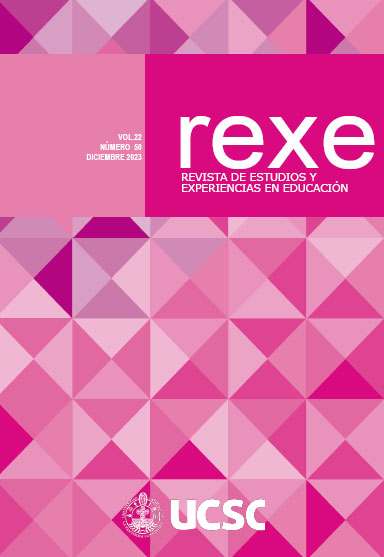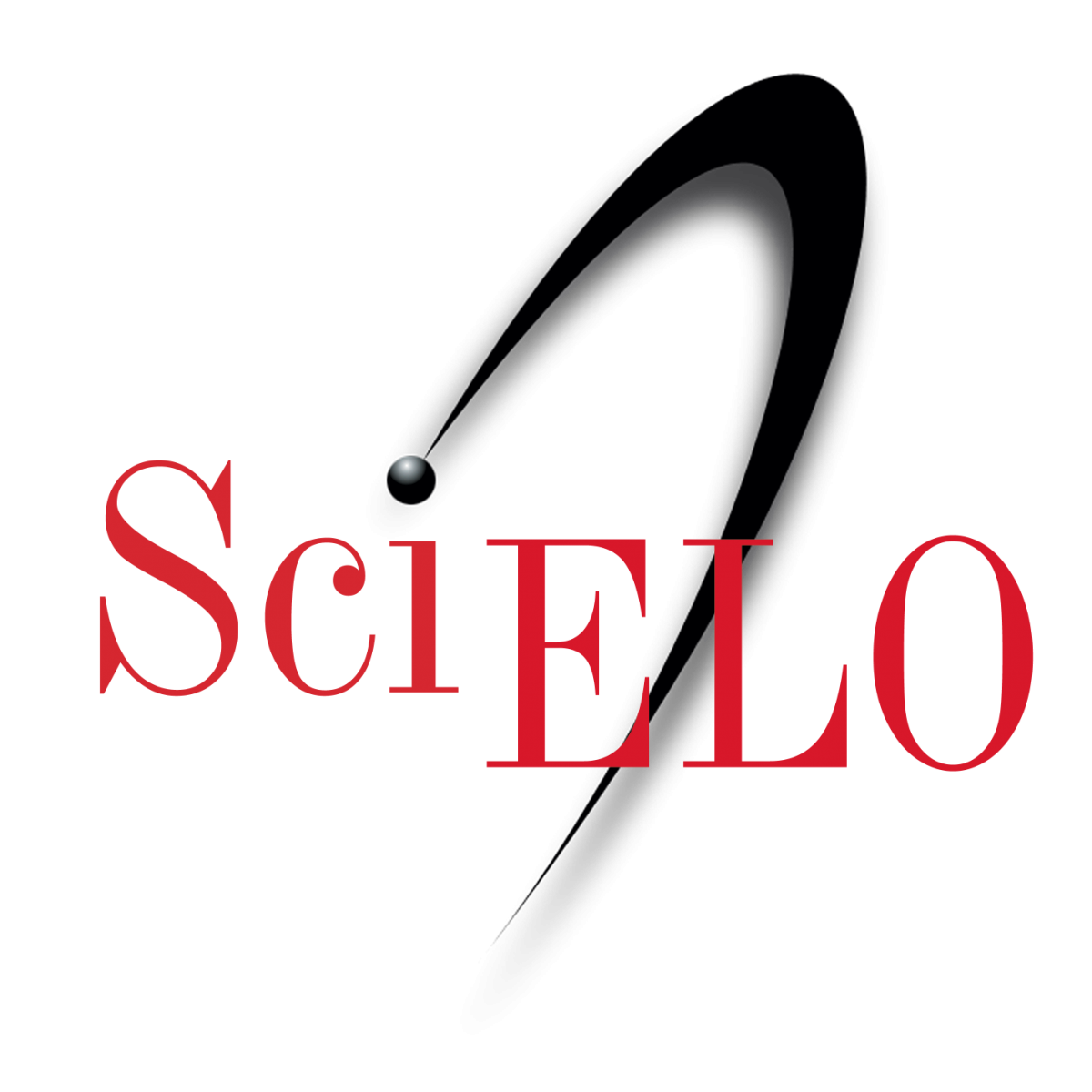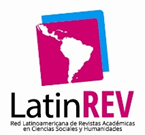STEAM teachers: Design and validation of a teacher training program
DOI:
https://doi.org/10.21703/rexe.v22i50.1986Keywords:
Educación STEAM, formación del profesorado, desarrollo profesional docente, desarrollo sostenible, D-BRAbstract
The agenda 2030 for Sustainable Development states that education is vital to a fair and sustainable society, and it indicates educational approaches such as STEM and STEAM education as means to achieve such goals. Based on that, this study sought to design and validate an early years teacher training program on STEAM education for sustainability for Chilean teachers. Therefore, a study based on the Design-Based Research (D-BR) approach was carried out in three iterations, validated through expert judgment by researchers and teachers, and evaluations of participants during the courses’ implementation. Key elements of the program’s design have been identified in the first iteration: theoretical conceptualization, Subjects’ integration, contextualization, sustainable development, active methodologies, focus on practice and teacher collaboration; in the second iteration: co-evaluation was incorporated as a strategy; finally, in the third iteration, the training program was implemented with a group of 31 teachers. As a result, the final version, called Pro-STEAM, considers three modules: Education for the 21st Century, STEAM Education and STEAM Implementation.
Downloads
References
Anderson, T., y Shattuck J. (2012). Design-Based Research: A Decade of Progress in Education Research? Educational Researcher. 41(1),16-25. https://doi.org/10.3102%2F0013189X11428813
Alsina, Á., Contreras, M., y Reyes, J. (2022). Matemáticas en contexto en Educación Primaria: conexiones con el entorno y con la música. Unión: revista iberoamericana de educación matemática, 18(64), 1-20. https://orcid.org/0000-0001-8506-1838
Alsina, Á., y Mulà, I. (2021). Sumando competencias matemáticas y de Sostenibilidad. Implementar y evaluar actividades interdisciplinares. UNO: revista de didáctica de las matemáticas, 23 - 30.
Alsina, Á. (2020). Conexiones matemáticas a través de actividades STEAM en Educación Infantil. Unión - Revista iberoamericana de educación matemática, 16(58), 168-190. https://union.fespm.es/index.php/UNION/article/view/69
Alsina, Á., Batllori, R., Falgás, M., Güell, R. y Vidal, I. (2016). ¿Cómo hacer emerger las experiencias previas y creencias de los futuros maestros? Prácticas docentes desde el modelo realista. REDU. Revista de Docencia Universitaria, 14(2), 11–36. https://doi.org/10.4995/REDU.2016.5672
Bakker, A. y Van Eerde, H. (2015). An introduction to design- based research with an example from statistics education. En A. Bikner- Ahsbahs, C. Knipping, y N. Presmeg (Eds.), Doing qualitative research: methodology and methods in mathematics education. (pp. 429–466) Springer https://doi.org/10.1007/978-94-017-9181-6_16
Baker, C., y Galanti, T. (2017). Integrating STEM in elementary classrooms using model- eliciting activities: responsive professional development for mathematics coaches and teachers. International Journal of STEM Education, 4(1), 10. https://doi.org/10.1186/s40594-017-0066-3
Boice K., Jackson J., Alemdar M., Rao A., Grossman S., y Usselman M. (2021). Supporting Teachers on Their STEAM Journey: A Collaborative STEAM Teacher Training Program. Education Sciences, 11(3), 1-20. https://doi.org/10.3390/educsci11030105
Carmona-Mesa, J. A., Cardona Zapata, M. E., y Castrillón-Yepes, A. (2020). Estudio de Fenómenos Físicos en la formación inicial de Profesores de Matemáticas. Una experiencia con Enfoque Stem. Unipluriversidad, 20(1), 18–38. https://doi.org/10.17533/udea.unipluri.20.1.02
Castro, A., Iturbe, C., Jiménez, R., y Silva, M. (2020). ¿Educación STEM o en humanidades? Una reflexión en torno a la formación integral del ciudadano del siglo XXI. Utopía y Praxis Latinoamericana, 25, 197-208. https://doi.org/10.5281/zenodo.4110904
Couso, D. (2017). Per a què estem a STEM? Un intent de definir l’alfabetització STEM per a tothom i amb valors. Ciències: revista del professorat de ciències de Primària i Secundària, 34, 22–30. https://doi.org/10.5565/rev/ciencies.403
Creswell, J., y Plano Clark, V. (2018). Designing and conducting mixed methods research. Sage
Design-Based Research Collective. (2003). Design-Based Research: An Emerging Paradigm for Educational Inquiry. Educational Researcher, 32(1), 5-8. https://doi.org/10.3102/0013189X032001005
Diego-Mantecon, J.-M., Prodromou, T., Lavicza, Z., Blanco, T. F., y Ortiz-Laso, Z. (2021). An attempt to evaluate steam project-based instruction from a school mathematics perspective. ZDM – Mathematics Education, 53(5), 1137–1148. https://doi.org/10.1007/s11858-021-01303-9
Domínguez, P., Oliveros, M., Coronado, M., y Valdez, B. (2019). Retos de ingeniería: Enfoque educativo STEM+A en la revolución industrial 4.0. Innovación Educativa, 19(80), 15-32. https://www.scielo.org.mx/pdf/ie/v19n80/1665-2673-ie-19-80-15.pdf
Du, W., Liu, D., Johnson, C. C., Sondergeld, T. A., Bolshakova, V. L., y Moore, T. J. (2019). The impact of integrated stem professional development on teacher quality. School Science and Mathematics, 119(2), 105–114. https://doi.org/10.1111/ssm.12318
Generalitat de Catalunya (2017). Pla STEMcat d’impuls de les vocacions científiques, tecnològiques, en enginyeria i en Matemàtiques. https://educacio.gencat.cat/web/.content/home/departament/linies-estrategiques/pla-stem/pla-stem.pdf
Guerra, C., Moreira, A., y Vieira, R. (2017). Technological pedagogical content knowledge developmentintegrating technology with a Research Teaching Perspective. Digital Education Review, 32, 85-96, http://greav.ub.edu/der/
Hernández-Nieto, R. (2002). Contributions to Statistical Analysis. Mérida, Venezuela: Universidad de Los Andes.
Illán, N., y Molina, J. (2011). Integración curricular: respuesta al reto de educar en y desde la diversidad. Educar em Revista, 41, 17-40. https://www.scielo.br/j/er/a/WWxzNvjG5rKFhfhXPqcmQKy/?format=pdf
Jurado, E., Fonseca, D., Coderch, J., y Canaleta, X. (2020). Social Steam Learning at an early age with robotic platforms: A case study in four schools in Spain. Sensors, 20(13), 3698. https://doi.org/10.3390/s20133698
Juuti, K., y Lavonen, J. (2006). Design-Based Research in Science Education: One Step Towards Methodology. Nordina, 4, 54–68. https://doi.org/10.5617/nordina.424
Kelley, T., y Knowles, J. (2016). A conceptual framework for integrated STEM education. International Journal of STEM Education, 3, 1–11. https://doi.org/10.1186/s40594-016-0046-z
Lluch-Molins, L., y Cano-García, E. (2022). Diseño y validación de un instrumento para la evaluación competencial en el marco del desarrollo profesional docente. Revista Electrónica Interuniversitaria de Formación del Profesorado, 25(2), 79-91. https://doi.org/10.6018/reifop.514961
López-Gamboa, M. V. (2021). Curso virtual: Educación Stem/steam, concepción e implementación. Experiencias de Su Ejecución Con Docentes Costarricenses. Innovaciones Educativas, 23(Especial), 163–177. https://doi.org/10.22458/ie.v23iespecial.3620
Martínez, G., Mateos, M., y Naranjo, F. (2020). La didáctica de las áreas STEM en la formación del profesorado. Desarrollo de propuestas de intervención en el aula de educación secundaria. En Feltrero, R. (Ed.), La enseñanza de las ciencias desde la pedagogía social: El paradigma educativo STEM como modelo para la educación integral de ingenieros y ciudadanos (pp. 141-153). Global Knowledge Academics.
McKenney, S., y Reeves, T. (2014). Educational Design Research. En Spector, M., Merrill, D., Elen, J. and Bishop, M. (Ed). Handbook of Research on Educational Communications Technology (131-140). Springer. https://doi.org/10.1007/978-1-4614-3185-5_11
National Academy of Engineering and National Research Council [NAE y National Research Council. (2014). STEM integration in K-12 education: Status, prospects, and an agenda for research. The National Academies Press. https://doi.org/10.17226/18612.
ONU (2015). Memoria del Secretario General sobre la labor de la Organización. Naciones Unidas. https://docplayer.es/93659967-Memoria-del-secretario-general-sobre-la-labor-de-la-organizacion.html
Parchmann, I., Grasel, C., Baer, A., Nentwig, R., y Ralle, B. (2006) “Chemie im Kontext”: A symbiotic implementation of a context-based teaching and learning approach. International Journal of Science Education, 28(9), 1041-1062. https://doi.org/10.1080/09500690600702512
Pedrosa, I., Suárez-Álvarez, J., y García-Cueto, E. (2013). Evidencias sobre la Validez de Contenido: Avances Teóricos y Métodos para su estimación. Acción Psicológica, 10(2), 3-18. https://dx.doi.org/10.5944/ap.10.2.11820
Perignat, E. y Katz-Buonincontro, J. (2019). STEAM in practice and research: An integrative literature review. Thinking Skills and Creativity, 31, 31–43. https://doi.org/10.1016/j.tsc.2018.10.002
Plomp, T. (2007). Educational design-based research: An introduction. En Plomp T. y Nieveen, N. (Eds.), An Introduction to Educational Design Research (pp.9 -35). SLO.
Quigley, C. F., y Herro, D. (2016). “Finding the joy in the unknown”: implementation of STEAM teaching practices in middle school science and math classrooms. Journal of Science Education and Technology, 25(3), 410-426. https://doi.org/10.1007/978-3-030-04003-1_9
Rocard, M., Csermely, P., Jorde, D., Lenzen, D., Walwerg Henriksson, H., y Hemmo, V. (2007). Science education now: A renewed pedagogy for the future of Europe. European Communities. https://www.eesc.europa.eu/sites/default/files/resources/docs/rapportrocardfinal.pdf
Rodrigues-Silva, J., y Alsina, Á. (2022). Effects of a practical teacher-training program on Steam Activity Planning. Revista Tempos e Espaços Em Educação, 15(34), 1–15. https://doi.org/10.20952/revtee.v15i34.17993
Scott, C. (2015). El futuro del aprendizaje 2 ¿Qué tipo de aprendizaje se necesita en el siglo XXI? Investigación y prospectiva en educación. UNESCO, París. [documentos de trabajo N° 14]. http://unesdoc.unesco.org/images/0024/002429/242996s.pdf
Smith, C., Svendsen, B., y Gray, P. (2017). Further Professional Development of Teachers. En Taber, K., Akpan, B. (Eds.) Science Education. New Directions in Mathematics and Science Education (pp. 551-560). SensePublishers. https://doi.org/10.1007/978-94-6300-749-8_40
Silva-Hormazábal, M., Rodrigues-Silva, J., y Alsina, Á. (2022). Conectando matemáticas e ingeniería a través de la estadística: una actividad STEAM en educación primaria. Revista Electrónica de Conocimientos, Saberes y Prácticas, 5(1), 9–31. https://doi.org/10.5377/recsp.v5i1.15118
Tao, Y. (2019). Kindergarten Teachers’ Attitudes toward and Confidence for Integrated STEM Education. Journal for STEM Education Research, 2(2), 154–171. https://doi.org/10.1007/s41979-019-00017-8
Toma, R. B., y Retana-Alvarado, D. A. (2021). Mejora de las concepciones de Maestros en Formación de la Educación Stem. Revista Iberoamericana De Educación, 87(1), 15–33. https://doi.org/10.35362/rie8714538
Tovar, D. (2019). Educación STEM en la Sudamérica hispanohablante. Latin-American Journal of Physics Education, 13(3), 3308. https://dialnet.unirioja.es/servlet/articulo?codigo=7553951
Topalska, R. (2021). STEAM education in the view of the Bulgarian teacher. TEM Journal, 10(4), 1822–1827. https://doi.org/10.18421/tem104-45
UNESCO. (2017). Education for sustainable development goals: Learning objectives. UNESCO. https://unesdoc.unesco.org/ark:/48223/pf0000247444
UNESCO. (2016). Educación 2030 Declaración de Incheon y Marco de Acción: hacia una educación inclusiva y equitativa de calidad y un aprendizaje a lo largo de la vida para todos. UNESCO. https://unesdoc.unesco.org/ark:/48223/pf0000245656_spa
UNESCO. (2019). Descifrar el código: La educación de las niñas y las mujeres en ciencias, tecnología, ingeniería y matemáticas (STEM). https:// unesdoc.unesco.org/ark:/48223/pf0000366649?posInSet=1yqueryId=d5f381 da-86f6-442b-8f3b-a86a83220043
Wu, B., Peng, X., y Hu, Y. (2021). How to foster pre-service teachers’ STEM learning design expertise through virtual internship: a design-based research. Educational Technology Research and Development, 69, 3307–3329. https://doi.org/10.1007/s11423-021-10063-y
Yackman, G., & Lee, Y. (2012). Exploring the exemplary STEAM education in the US as a practical educational framework for Korea. Journal of Korea Association Science Education, 32(6), 1072-1086. https://doi.org/10.14697/jkase.2012.32.6.1072
Yildirim, B. (2020). Öğretmen Yetiştirme üzerine Bir model önerisi: Stem öğretmen Enstitüleri Eğitim Modeli. Pamukkale University Journal of Education, 1–29. https://doi.org/10.9779/pauefd.586603
Yip, W. Y. (2020). Developing undergraduate student teachers’ competence in integrative stem teaching. Frontiers in Education, 5, 1–9. https://doi.org/10.3389/feduc.2020.00044
Downloads
Published
Issue
Section
License
Open Access Policy
This journal provides immediate open access to its content, based on the principle that offering the public free access to research fosters greater global knowledge exchange.
License
The REXE Journal, “Journal of Studies and Experiences in Education,” published by the Faculty of Education at the Universidad Católica de la Santísima Concepción, is distributed under a License. Creative Commons Atribución 4.0 Internacional.






